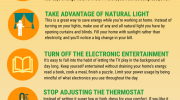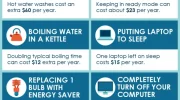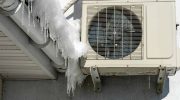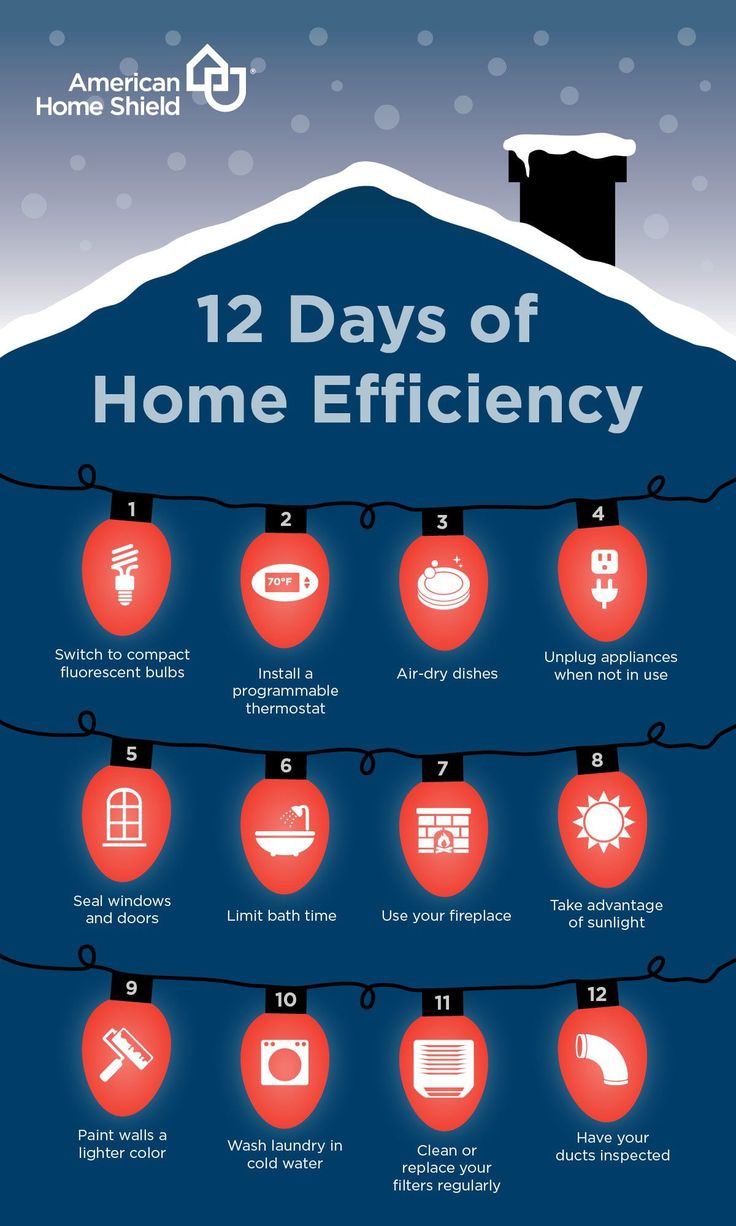
Seasonal Energy-Efficiency Tips
When the seasons change, it’s important to make sure your home is energy-efficient. Not only will this help you save money on your utility bills, but it will also ensure that you stay comfortable no matter the temperature outside. Whether it’s winter or summer, there are simple steps you can take to improve your energy efficiency and reduce your carbon footprint.
During the winter months, it’s essential to keep the heat inside your home. One way to do this is by insulating your windows and doors. Drafts around windows and doors can let cold air in and warm air out, forcing your heating system to work harder. By sealing any gaps or cracks, you can prevent heat loss and save on heating costs. Additionally, you can use heavy curtains or blinds to create an extra barrier against the cold.
In the summer, it’s crucial to keep the cool air in and the hot air out. To do this, make sure your windows are properly insulated and that you’re using window coverings to block out the sun’s heat. You can also use fans to circulate the air and create a cooling effect, allowing you to set your air conditioning thermostat a few degrees higher.
Lastly, no matter the season, it’s essential to turn off lights and appliances when they’re not in use. By replacing traditional incandescent light bulbs with energy-efficient LED bulbs, you can also reduce your energy consumption. Additionally, consider using power strips to easily turn off multiple devices at once, as some appliances continue to draw power even when they’re turned off.
Tips for Saving Money and Staying Comfortable with Seasonal Energy-Efficiency
With the changing seasons, it’s important to adjust our energy usage to save money and stay comfortable. Here are some tips for seasonal energy-efficiency:
- Keep your thermostat in check: Adjusting your thermostat by just a few degrees can save you a significant amount of money on your energy bill. In the winter, set your thermostat to a cooler temperature when you’re away from home or when you’re sleeping. In the summer, set it higher when you’re not at home.
- Use natural light: Take advantage of the natural light during the day instead of relying on artificial lighting. Open curtains and blinds to let the sunlight in and turn off lights in empty rooms.
- Seal air leaks: Inspect your home for any air leaks around windows, doors, and vents. Seal these areas with weatherstripping or caulk to prevent drafts and keep the cold air out in the winter and the hot air out in the summer.
- Use ceiling fans: Ceiling fans can help circulate the air, making your home feel cooler in the summer and warmer in the winter. Make sure to adjust the direction of the fan blades seasonally.
- Unplug unused electronics: Many electronics still consume energy even when they’re turned off. Unplug devices that are not in use or use power strips with an on/off switch to easily cut off the power supply.
- Upgrade to energy-efficient appliances: Consider replacing old appliances with energy-efficient models. Look for appliances with the ENERGY STAR label, as they are designed to use less energy and save you money in the long run.
These simple tips can make a big difference in saving energy and money throughout the year. By being mindful of your energy usage, you can stay comfortable while reducing your environmental impact.
Remember, small changes now can lead to big savings later on!
Use Programmable Thermostats
One of the most effective ways to save energy and money during different seasons is to use programmable thermostats. These devices allow you to set different temperatures for different times of the day or week, ensuring that you only heat or cool your home when it’s necessary.
Here are some tips for using programmable thermostats:
- Set lower temperatures during the winter months and higher temperatures during the summer months when you are not at home or when you are asleep.
- Program the thermostat to adjust the temperature before you wake up or return home, so you can enjoy a comfortable environment without wasting energy.
- Take advantage of the “vacation” or “hold” feature to temporarily override the programmed settings when you are away from home for an extended period. This prevents the heating or cooling system from operating unnecessarily.
- Consider zoning your home and installing multiple programmable thermostats. This allows you to control the temperature in different areas of your home independently, maximizing comfort and energy savings.
- Regularly check and update the programming of your thermostat to ensure it aligns with your schedule and preferences.
Using programmable thermostats can significantly reduce your heating and cooling costs while maintaining a comfortable indoor environment. By following these tips, you can optimize the energy efficiency of your HVAC system and enjoy savings throughout the seasons.
Install Energy-Efficient Windows
One of the most effective ways to save energy and reduce your heating and cooling costs is to install energy-efficient windows in your home. Windows are a major source of heat gain in the summer and heat loss in the winter, so upgrading to energy-efficient windows can make a significant difference in your energy consumption.
Here are some tips for choosing and installing energy-efficient windows:
- Look for the ENERGY STAR label: When shopping for windows, look for the ENERGY STAR label. This label indicates that the windows have met the energy efficiency requirements set by the Environmental Protection Agency and the Department of Energy.
- Consider the climate: The climate in which you live will determine the type of windows that will be most energy-efficient. In colder climates, look for windows with a low U-factor and a high R-value, as these windows will provide better insulation. In warmer climates, look for windows with a low solar heat gain coefficient (SHGC) to reduce heat gain.
- Choose the right frame material: The frame material of the window can impact its energy efficiency. Vinyl and fiberglass frames are good options, as they offer high thermal performance. Avoid aluminum frames, as they conduct heat and cold.
- Insulate around the windows: Proper insulation around the windows is crucial for energy efficiency. Use caulking or weatherstripping to seal any gaps or cracks around the window frames.
- Consider double or triple glazing: Windows with double or triple glazing offer better insulation than single-glazed windows. The extra layers of glass create air pockets that help to reduce heat transfer.
By installing energy-efficient windows, you can not only save money on your energy bills, but also improve the comfort of your home. Energy-efficient windows help to keep your home warmer in the winter and cooler in the summer, reducing the need for excessive heating and cooling.
Investing in energy-efficient windows is a smart choice that will pay off in the long run. Not only will you enjoy cost savings and increased comfort, but you will also be reducing your environmental impact by reducing your energy consumption.
Ensure Proper Insulation
Proper insulation is crucial for maintaining energy efficiency in your home. Here are some tips to ensure your home is well-insulated:
- Check for drafts: Be mindful of any drafts or air leaks around windows, doors, and vents. Use weatherstripping or caulk to seal these areas and prevent heat loss.
- Add insulation: Make sure your walls, ceilings, and floors are properly insulated. Insulation helps to trap heat inside during the winter and keep it out during the summer. Consider adding additional insulation if needed.
- Insulate pipes: Insulating hot water pipes can prevent heat loss and increase the efficiency of your water heater. Use foam pipe insulation sleeves to wrap around exposed pipes.
- Seal ducts: Leaky ducts can lead to significant energy loss. Seal any gaps or cracks in your ductwork to improve heating and cooling efficiency.
By ensuring proper insulation throughout your home, you can reduce energy waste and keep your home comfortable all year round.
Seal Air Leaks
One of the easiest ways to improve energy-efficiency in your home is to seal any air leaks. Air leaks occur when air enters or escapes your home through small cracks and gaps, leading to increased energy use and higher utility bills. Here are some tips to help you seal air leaks:
- Inspect your home: Walk around your home and carefully inspect areas where air can escape, such as windows, doors, electrical outlets, and vents. Look for cracks, gaps, or any signs of air leakage.
- Use weatherstripping: Install weatherstripping along the edges of windows and doors to create a seal and prevent drafts. Choose weatherstripping materials that are appropriate for the type of gap you are sealing.
- Caulk gaps: Use caulk to seal small cracks and gaps. Apply caulk around window frames, baseboards, and any other areas where air might be leaking. Make sure to use a caulk that is appropriate for the material you are sealing.
- Seal electrical outlets: Install foam gaskets or use outlet sealers to seal electrical outlets. These can help prevent air leaks through the outlets.
- Insulate: Insulate your home properly to minimize air leakage. Consider adding insulation to your attic, walls, and floors to help keep the warm air inside during the winter and the cool air inside during the summer.
By taking the time to seal air leaks in your home, you can improve energy-efficiency, reduce your carbon footprint, and save money on your energy bills. Regularly inspect your home for air leaks and take action to seal them as soon as possible.
Maintain HVAC Systems
Regular maintenance of your HVAC (heating, ventilation, and air conditioning) systems is crucial for ensuring their optimal performance and energy efficiency. Here are some seasonal energy-efficiency tips to help you maintain your HVAC systems:
- Clean or replace filters: Dirty filters restrict airflow and cause your HVAC system to work harder. Clean or replace filters regularly, typically every 1-3 months, to ensure proper airflow and energy efficiency.
- Inspect and seal ducts: Check your ducts for leaks, holes, or loose connections. Leaky ducts can lead to wasted energy and reduced system performance. Seal any leaks with mastic or metal tape to improve energy efficiency.
- Clean and clear outdoor units: Remove any debris, leaves, or vegetation that may have collected around your outdoor HVAC units. This helps maintain good airflow and prevent system blockages.
- Check thermostat settings: Ensure that your thermostat is set correctly for each season. Lower the temperature during winter and raise it during summer to save energy and increase comfort.
- Schedule professional maintenance: Hire a professional HVAC technician to inspect and service your system at least once a year. They can identify any issues, clean components, lubricate moving parts, and optimize your system’s energy efficiency.
By following these seasonal energy-efficiency tips and maintaining your HVAC systems properly, you can save money on your energy bills while staying comfortable all year round.
Optimize Ventilation
Proper ventilation is an important aspect of seasonal energy-efficiency. By optimizing ventilation in your home, you can improve air quality and reduce the need for heating and cooling, ultimately saving money on your energy bills. Here are some tips to help you optimize ventilation:
- Open windows strategically: During mild seasons, opening windows can help fresh air circulate throughout your home. Open windows on opposite sides of your home to create a cross breeze that cools down your interior without the need for air conditioning.
- Use natural ventilation: Take advantage of natural ventilation by opening windows and doors during the cooler parts of the day or night. This allows fresh air to flow throughout your home without relying heavily on mechanical systems.
- Install window coverings: Consider using blinds, curtains, or shades to manage the amount of sunlight that enters your home. During hot seasons, close window coverings during the day to prevent excess heat from entering, and open them in the evening to let cool air in.
- Invest in ventilation systems: If you live in an area with poor air quality or high humidity, investing in a whole-house ventilation system can be a beneficial long-term solution. These systems help filter out pollutants and regulate moisture levels while exchanging stale indoor air with fresh outdoor air.
By optimizing ventilation, you can create a more comfortable living environment while reducing your reliance on heating and cooling systems. This leads to significant energy savings and a more energy-efficient home overall.
Use Ceiling Fans
One of the most effective and energy-efficient ways to stay comfortable during the seasonal changes is to use ceiling fans. Ceiling fans can help circulate the air in your home, creating a breeze that can make it feel cooler in the summer and warmer in the winter.
Here are a few tips on how to make the most of your ceiling fans:
- Adjust the direction: In the summer, you should set your ceiling fans to rotate counterclockwise. This will create a cooling effect by moving the air downward. In the winter, you can change the direction to clockwise, which will help circulate warm air that rises.
- Use in conjunction with the thermostat: By using ceiling fans in combination with your thermostat, you can save energy and money. During the summer, you can raise the temperature on your thermostat a few degrees and still feel comfortable with the help of the ceiling fan. In the winter, you can lower the temperature a bit and still feel warm with the circulating air from the fan.
- Optimize fan speed: Make sure to adjust the fan speed based on your comfort level and the temperature in the room. Higher speeds create a stronger cooling effect, while lower speeds provide a gentle breeze.
- Keep the fan clean: Regularly clean your ceiling fan to keep it running smoothly and efficiently. Dust buildup can affect its performance and may even cause it to be less effective at circulating the air.
Using ceiling fans strategically can help you stay comfortable while reducing your energy consumption and saving money on your utility bills. So take advantage of this simple and affordable solution to improve the energy efficiency of your home.
Use Curtains and Blinds
In order to maximize seasonal energy-efficiency, it is important to utilize curtains and blinds in your home. These window coverings can help regulate the temperature inside your house and reduce the need for excessive heating or cooling.
During the warm summer months, closing curtains or blinds during the day can prevent the sun’s rays from entering your home and heating up the rooms. This can help keep the interior cooler, reducing the amount of energy required for air conditioning. Additionally, using light-colored curtains or reflective blinds can further help reflect the sunlight and heat away from your home.
In contrast, during the colder winter months, opening curtains or blinds during the day can allow sunlight to naturally warm up your home. This can help reduce the need for heating, especially during sunny days. However, be sure to close the curtains or blinds once the sun sets to trap the heat inside and prevent it from escaping through the windows.
Benefits of using curtains and blinds:
- Regulate temperature inside your home
- Reduce the need for excessive heating or cooling
- Prevent sun’s rays from heating up rooms in summer
- Reflect sunlight and heat away from your home
- Allow sunlight to naturally warm up your home in winter
- Trap heat inside and prevent it from escaping through windows
By utilizing curtains and blinds strategically and according to the season, you can save money on energy bills and stay comfortable all year round.
Utilize Natural Light
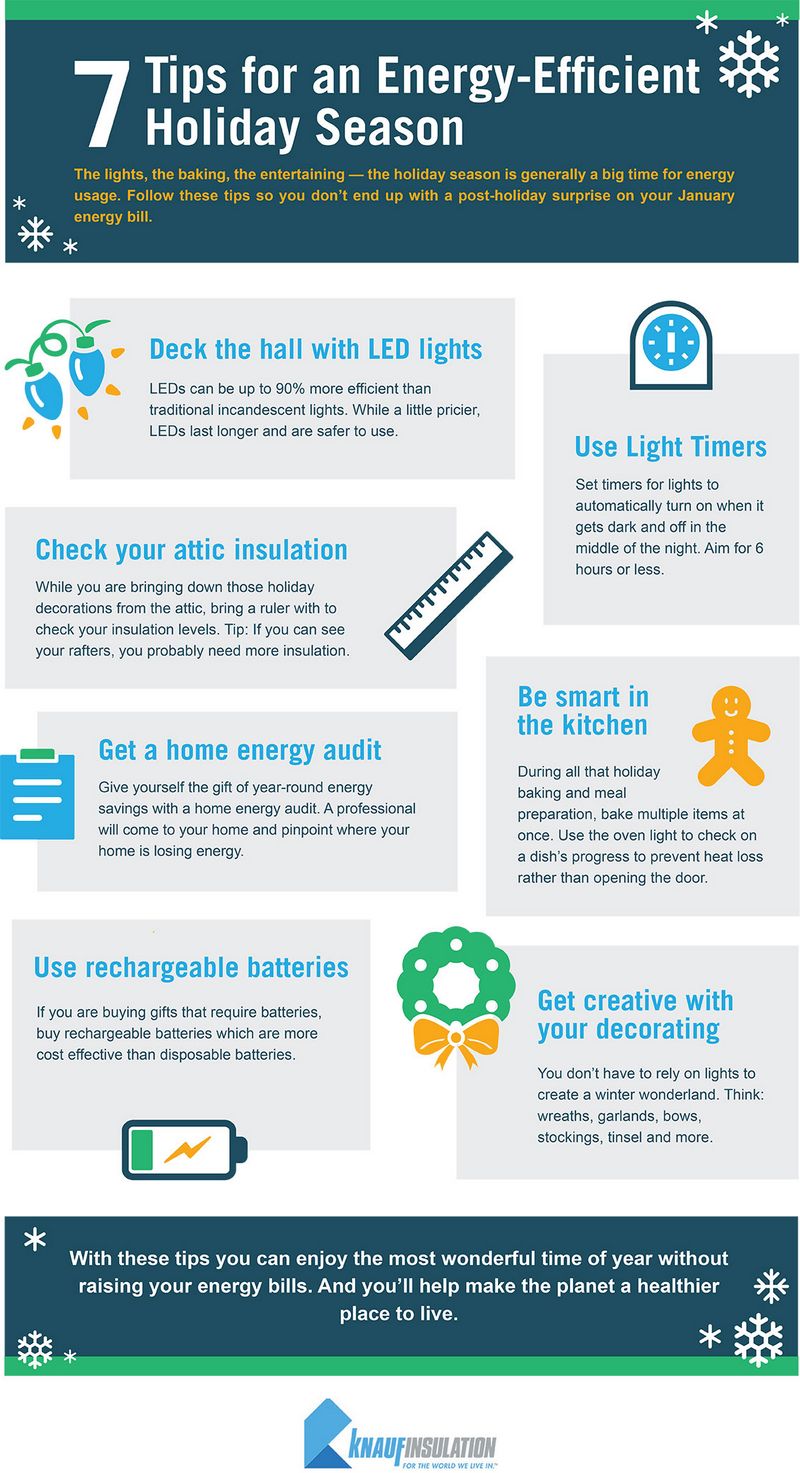
One of the easiest and most effective ways to save energy during the seasonal changes is to make the most of natural light. Here are some tips to help you utilize natural light in your home:
- Open curtains and blinds during the day to allow sunlight to enter your home. This will not only brighten up your space but also provide natural warmth, reducing the need for artificial lighting and heating.
- Arrange your furniture in a way that allows sunlight to reach as many areas of the room as possible. Avoid placing tall objects that may block the light path.
- Use light-colored window coverings or sheer curtains that allow sunlight to filter through while still providing privacy.
- Clean your windows regularly to ensure maximum sunlight penetration. Dust and dirt can block the light and reduce its effectiveness.
By utilizing natural light, you can not only save on energy costs but also create a warm and inviting atmosphere in your home. Make it a habit to take advantage of the natural light available in each room, and you’ll notice the difference in your comfort and energy usage.
Reduce Water Heating Costs
Water heating is a significant contributor to energy usage in many homes. By making some simple changes, you can reduce your water heating costs and save money. Here are some energy-efficiency tips:
- Lower the temperature: Lowering the temperature of your water heater to 120 degrees Fahrenheit can save energy and prevent scalding accidents. This can be done by adjusting the thermostat or installing a water heater blanket.
- Insulate your pipes: Insulating your hot water pipes reduces heat loss, allowing you to get hot water faster and avoid wasting water while waiting for it to heat up.
- Use efficient fixtures and appliances: Install low-flow showerheads and faucet aerators to reduce the amount of hot water used without sacrificing water pressure. Consider replacing old, inefficient water heaters with more energy-efficient models.
- Fix leaks: Even small leaks in your hot water system can result in significant energy and water waste. Regularly check for leaks and promptly repair them to conserve both energy and water.
- Wash clothes in cold water: The majority of energy used by a washing machine goes to heating the water. Washing clothes in cold water can help reduce your energy consumption for laundry.
- Take shorter showers: Limiting your shower time can significantly reduce the amount of hot water used. Consider installing a timer or using a water-saving showerhead to help you keep your showers short.
By implementing these energy-efficiency tips, you can reduce your water heating costs and contribute to a more sustainable future.
Choose Energy-Efficient Appliances
When it comes to saving energy and reducing your utility bills, one of the most effective ways is to choose energy-efficient appliances. These appliances are designed to consume less energy while still providing the same level of performance and functionality as their less-efficient counterparts.
Here are some tips to help you make energy-efficient choices:
- Look for ENERGY STAR® certification: The ENERGY STAR label is a certification given to products that meet strict energy efficiency guidelines set by the U.S. Environmental Protection Agency and the Department of Energy. Appliances with this certification are guaranteed to consume less energy compared to standard models.
- Consider the size: Choosing the right size of an appliance can also contribute to its energy efficiency. For example, if you have a small household, buying a large refrigerator may lead to wasted energy as it will be running at a higher capacity than necessary. On the other hand, an undersized appliance may have to work harder to keep up with demand, resulting in higher energy consumption.
- Check the annual energy consumption: Most appliances come with an Energy Guide label that shows an estimate of their annual energy consumption. Make sure to compare this information when choosing between different models. Lower numbers indicate better energy efficiency.
- Consider smart features: Some appliances come with smart features that allow for better control and energy management. For example, a smart thermostat can learn your schedule and adjust the temperature accordingly, helping you save energy when you’re not at home.
- Research energy-saving technologies: Stay up to date with the latest advancements in energy-saving technologies. For example, some appliances now use inverter technology, which allows them to adjust their power consumption based on the current demand. These appliances can be more energy-efficient compared to traditional models.
By choosing energy-efficient appliances, you can reduce your energy consumption and lower your utility bills. Make sure to do your research and compare different models before making a purchase to ensure you’re getting the most energy-efficient option for your needs.
Unplug Electronics When Not in Use
One of the easiest and most effective ways to save energy and reduce your electricity bill is by unplugging your electronics when they are not in use. Many devices, even when turned off, continue to draw power, also known as standby power or vampire power. This standby power can account for up to 10% of a household’s energy usage.
To prevent this unnecessary energy waste, make it a habit to unplug electronics such as televisions, computers, game consoles, and chargers when they are not being actively used. This simple step can help you save money on your energy bills and also contribute to a more sustainable future.
Here are some tips to help you remember to unplug:
- Create a checklist of electronics in your home and mark them off when they are unplugged.
- Use power strips with on/off switches to easily turn off multiple devices at once.
- Consider using smart power strips that automatically turn off power to devices when they are not in use.
- Set reminders on your phone or computer to unplug devices at certain times of the day or week.
By unplugging your electronics when they are not in use, you can significantly reduce wasted energy and save money on your electricity bills. Take this seasonal energy-efficiency tip to heart and make a positive impact on both your wallet and the environment.
Opt for Energy Star Electronics
When it comes to saving energy and money, one way to make a significant impact is by choosing energy-efficient electronics. Energy Star is a voluntary program launched by the U.S. Environmental Protection Agency (EPA) and the U.S. Department of Energy (DOE) to help consumers identify and purchase products that are energy efficient. Here are some tips to consider:
- Look for the Energy Star label: When shopping for electronics, look for the Energy Star label. This label indicates that the product meets specific energy efficiency criteria set by the EPA and DOE.
- Choose energy-efficient options: Energy Star-certified electronics are designed to use less energy and save you money on your energy bills. Look for Energy Star-certified TVs, computers, printers, and other electronic devices.
- Consider smart features: Some Energy Star electronics come with smart features that can further enhance their energy efficiency. For example, smart thermostats can learn your schedule and adjust the temperature accordingly, saving energy when you’re away.
By opting for Energy Star electronics, you can reduce your energy consumption and contribute to a greener future. Not only will this help you save money, but it will also help protect the environment.
Adjust Water Heater Temperature
One of the ways to save energy and money during the seasonal changes is by adjusting your water heater temperature.
Here are some tips to help you optimize your water heater settings:
- Lower the temperature: Lowering your water heater temperature by just a few degrees can significantly reduce your energy consumption. A temperature of 120°F (49°C) is generally considered safe and comfortable for most households.
- Use an insulation blanket: Insulating your water heater with an insulation blanket can help retain the heat and reduce the energy needed to keep the water hot.
- Install low-flow fixtures: Installing low-flow fixtures like showerheads and faucets can help you conserve hot water and reduce the amount of energy required to heat it.
- Consider a tankless water heater: Tankless water heaters only heat water on demand, which eliminates the need for a large storage tank and reduces standby losses. This can result in significant energy savings.
By adjusting the temperature of your water heater and implementing these tips, you can not only save on your energy bills but also help to protect the environment.
Insulate Water Heaters
Properly insulating your water heater can help improve its energy-efficiency, reduce heat loss, and save you money. Here are some tips on how to insulate your water heater:
- Check for existing insulation: Before insulating your water heater, check if it already has insulation. Newer models usually come with built-in insulation, but older models may not. If there is no insulation, take steps to add it.
- Choose the right insulation: There are different types of insulation materials available, such as fiberglass blankets, foam jackets, and insulating wraps. Make sure to choose the appropriate insulation material that is compatible with your water heater.
- Measure the dimensions: Before purchasing insulation material, measure the dimensions of your water heater to ensure you buy the right size. This will help in achieving proper coverage and maximum insulation efficiency.
- Wrap the heater: Carefully wrap the insulation material around the water heater, ensuring that it covers the sides, top, and bottom completely. Secure the insulation with tape or fasteners to keep it in place.
- Avoid covering important components: When insulating, be careful not to cover any important components, such as the temperature and pressure relief valve, thermostat, or access panels. These components should remain exposed for safety and maintenance purposes.
- Seal any gaps: Inspect the insulation after wrapping to ensure there are no gaps or areas where heat can escape. Use additional insulation or tape to seal any openings and improve the overall efficiency.
- Maintain accessibility: While insulating is important for energy-efficiency, it’s also essential to maintain accessibility to the water heater for repairs or maintenance. Avoid covering the access panels or valves that may need to be accessed in the future.
By insulating your water heater, you can reduce standby heat loss and improve its energy-efficiency. This can lead to significant cost savings on your energy bills while still ensuring a comfortable supply of hot water.
Take Advantage of Natural Cooling
During hot summer months, it’s important to find ways to keep your home cool without relying heavily on your air conditioning system. Here are some tips to take advantage of natural cooling:
- Open windows and doors in the evening and early morning when the outside temperature is cooler. This will allow fresh air to circulate through your home and help lower the indoor temperature.
- Use ceiling fans or portable fans to create a breeze and improve air circulation.
- Close curtains or blinds during the day to block out the heat from the sun. You can also use reflective window film to reduce the amount of heat that enters your home.
- Plant trees or install outdoor shading devices such as awnings or pergolas to provide natural shade for your home.
- Choose lighter colors for your exterior walls and roof to reflect more sunlight and reduce heat absorption.
- Keep appliances and electronics away from the thermostat as they generate heat and can cause the air conditioning system to work harder.
- Consider using natural ventilation techniques such as cross-ventilation by opening windows on opposite sides of your home to allow for the flow of air.
- Insulate your home properly to prevent heat transfer from the outside. This will help keep your home cool in the summer and warm in the winter.
By implementing these natural cooling tips, you can reduce your reliance on air conditioning, save energy, and stay comfortable during the hot summer months.
Schedule Regular HVAC Maintenance
Maintaining your HVAC (Heating, Ventilation, and Air Conditioning) system is essential for ensuring its energy-efficiency and optimal performance. Here are some tips to help you schedule regular HVAC maintenance:
- Annual inspections: Schedule an annual inspection with a licensed HVAC technician to check your system’s components, such as the motor, blower, and thermostat. They can also clean or replace filters, if necessary, to improve airflow and energy-efficiency.
- Ductwork inspection: Have your ductwork inspected to check for leaks, holes, or poorly connected joints. Sealing and insulating the ducts can prevent air leakage, reducing energy waste.
- Clean outdoor unit: Regularly clean the outdoor unit of your HVAC system to remove any debris or dirt that may obstruct airflow. This will allow your system to run more efficiently.
- Check refrigerant levels: Low refrigerant levels can reduce the cooling capacity of your air conditioner. Ensure that the refrigerant levels are checked and topped up, if needed, during the maintenance visit.
- Programmable thermostat: Consider installing a programmable thermostat to regulate heating and cooling based on your schedule. This can help save energy by automatically adjusting the temperature when you are away or sleeping.
- Regular filter changes: Replace your HVAC filters regularly, as clogged filters restrict airflow and reduce energy-efficiency. Refer to the manufacturer’s guidelines for the recommended filter change frequency.
By scheduling regular HVAC maintenance, you can ensure that your system operates efficiently, reducing energy waste and saving money in the long run.
Question-answer:
How can I save money on my energy bills during the winter?
During the winter, you can save money on your energy bills by adjusting your thermostat to a lower temperature, sealing any air leaks in your home, and properly insulating your windows and doors. Additionally, you can use curtains or blinds to keep the heat in and prevent drafts. This will help to reduce your heating costs and make your home more energy-efficient.
What are some ways to stay comfortable and save money during the summer?
During the summer, you can stay comfortable and save money by using fans instead of air conditioning, closing your curtains or blinds during the hottest part of the day to keep the sun out, and insulating your home to prevent hot air from entering. You can also use a programmable thermostat to adjust the temperature when you’re not at home. These simple steps can help lower your cooling costs and keep you comfortable during the hot months.
Are there any energy-efficient tips that can be used all year round?
Yes, there are several energy-efficient tips that can be used all year round. These include using LED light bulbs, unplugging electronics when not in use, and using power strips to easily turn off multiple devices at once. Additionally, regular maintenance of your heating and cooling systems can help improve their efficiency and reduce energy consumption.
How can I save money on my water heating costs?
You can save money on your water heating costs by lowering the temperature on your water heater to around 120°F (49°C), insulating your hot water pipes to reduce heat loss, and taking shorter showers. You can also install low-flow showerheads and faucets, which use less hot water without sacrificing water pressure. These practices can help reduce your energy bills and make your home more energy-efficient.
What are some energy-saving tips specific to heating and cooling systems?
Some energy-saving tips specific to heating and cooling systems include regularly changing your air filters to improve efficiency, having your HVAC system professionally maintained to ensure it is running at its best, and using a programmable thermostat to adjust the temperature based on your schedule. You can also consider upgrading to a more energy-efficient HVAC system, which can provide long-term savings on your energy bills.



